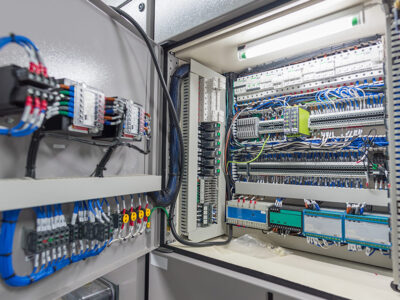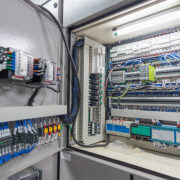
Building inspections are often perceived as routine procedures, but behind the scenes lies a world of expertise, attention to detail, and a relentless pursuit of safety and quality. The individuals tasked with conducting these inspections are more than just checklist-wielding enforcers; they are guardians of our built environments, dedicated to uncovering the secrets that lie within the walls and foundations of our structures.
Every successful building inspection lies in the inspector’s ability to observe the subtlest of details. These professionals possess a trained eye that detects even the most minute irregularities, cracks, or discolorations that may indicate underlying issues. Their observational skills extend beyond mere visual examination, encompassing all five senses to gather a comprehensive understanding of a building’s condition.
- Visual acuity – Building inspectors are masters of visual inspection, scrutinizing every surface, component, and system with a keen eye for potential problems. From hairline cracks in foundations to subtle discolorations on walls, their attention to detail is unparalleled.
- Auditory awareness – A good inspector knows that sound is a powerful indicator of hidden issues. They listen intently for creaks, groans, or unusual noises that may signify structural weaknesses, plumbing problems, or other concealed defects.
- Tactile sensitivity – Inspectors rely on their sense of touch to detect irregularities that may not be immediately visible. By running their hands along surfaces, they identify subtle changes in texture, temperature, or moisture levels that could point to potential concerns.
- Olfactory aptitude – Keen olfactory senses are invaluable in identifying issues that may go unnoticed by other means. Musty odors, chemical smells, or sewage scents are telltale signs of mold, hazardous materials, or plumbing problems lurking within the walls.
Investigative mindset
- Probing and testing – Good inspectors employ a variety of tools and techniques to delve deeper into areas of concern. From moisture meters and thermal imaging cameras to borescopes and endoscopic cameras, they leverage technology to gain insights beyond what the naked eye can see.
- Collaborative approach – Inspectors understand that some issues require specialized expertise. They embrace collaboration with architects, engineers, and other professionals, pooling their collective knowledge to unravel complex problems and provide comprehensive solutions.
- Attention to detail – Even the smallest details can hold significant clues about a building’s condition. Inspectors meticulously document their findings, taking notes, capturing photographs, and creating detailed reports that serve as a roadmap for addressing identified issues.
Commitment to safety
Perhaps the most significant secret behind a truly good building inspection is the inspector’s unwavering commitment to public safety. These professionals understand that their role extends far beyond simply enforcing rules, they are entrusted with the responsibility of protecting lives and ensuring the structural integrity of our built environments.
- Risk mitigation – Building inspectors are trained to identify potential hazards and proactively address them before they escalate into serious safety concerns. Their vigilance and attention to detail help mitigate risks and prevent accidents or catastrophic failures.
- Ethical integrity – Good inspectors operate with the highest ethical standards, putting public safety above all else. They remain impartial and objective, even in the face of external pressures, upholding their duty to ensure the safety and compliance of every structure they inspect.
- Continuous improvement – Inspectors understand that complacency leads to oversights and potential risks. They embrace a culture of continuous improvement, learning from past experiences, and adapting their practices to stay ahead of emerging challenges and evolving safety standards. Need further details? browse around this site.
By understanding and appreciating the skills and dedication behind a good building inspection, we foster a deeper appreciation for the invaluable role these professionals play in safeguarding our communities and preserving the integrity of our built environments for generations to come.











